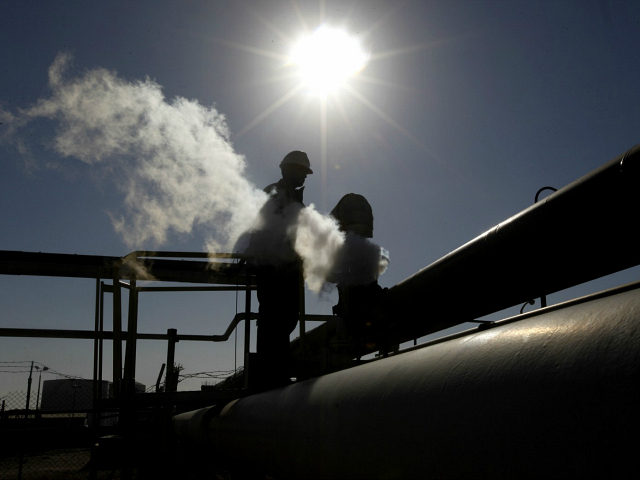The competing governments of Libya – the Government of National Accord (GNA) in Tripoli and the dissenting House of Representatives (HoR) in Tobruk – are struggling to maximize production at the Libyan National Oil Corporation (NOC) while limiting illegal side deals that are cannibalizing the NOC.
Libya’s NOC has struggled to keep oil production and refining at sustainable levels as Libya’s official governments vie for power against a variety of local militias and terrorist organizations, including the Islamic State and al-Qaeda.
The GNA is the official, United-Nations-approved government of Libya, the first since the fall of dictator Muammar Qaddafi in 2011. The HoR was once a rival government, later the UN-approved legislature of the GNA. It has since issued a vote of “no confidence” against the GNA last August. The HoR counts on support from Field Marshal Khalifa Haftar and his Libyan National Army (LNA), a Qaddafi-era military leader that developed a reputation as one of the strongest anti-jihadi players in the political field. Under Haftar’s control, NOC plants have significantly increased production.
Haftar suffered a crippling defeat this month when the Benghazi Defence Brigades (BDB), an Islamist militia formed to defeat Haftar, seized two major oil ports in Es Sider and Ras Lanuf, which jointly processed 600,000 barrels per day. The NOC’s limited ability to process oil has triggered a slight international rise in oil prices as well as damaging the little that remains of the Libyan economy post-Qaddafi.
On Sunday, the NOC announced that it had identified attempts to illegally sell Libyan oil on the international market and is acting to cut that supply. “NOC identified a group of individuals abusing the current status of political division in Libya by entering into illegal contracts with unknown or unqualified companies,” the organization said in a statement. “These individuals, and others associated with them, have offered Libyan crude oil for sale at huge discounts below the official selling price (OSP).”
The Reuters report quoting the NOC does not name any illegal actors in particular, other than unspecified “factions in eastern Libya,” which could be either the BDB or tribal militias working to keep the national government from imposing itself on their regions. Some tribal militias, however, have sought an agreement with the LNA in order to avoid being left alone to fight as jihadist groups expand their influence.
The Libyan government is working to empower the NOC, in part by merging some of its responsibilities with the government’s Oil and Gas Ministry, according to the Libya Observer. In a new order, the Presidential Council has commanded the NOC to “take up, in addition to its specializations, the executive plans in the field of oil industry and projects in oil and gas sectors, besides supervising the execution stages after the plans had been approved.”
Haftar’s troops have vowed to recover the oil ports and restore control of the oil trade to the legitimate government of Libya. In an interview published Tuesday with Turkey’s state-run Anadolu Agency, LNA military officer Ali Said confirmed that his forces are seeking to establish themselves in a former Qaddafi military base in order to expand their influence and defeat the BDB.
“Our recent deployments are aimed not only at recapturing strategic oil ports, but also at seizing the Jufra Airbase, from which the Benghazi Defense Brigades are able to strike our forces in the region,” he told Anadolu. His remarks expand upon an LNA statement confirming that Haftar’s troops are currently engaged in the recovery of Ras Lanuf.
In addition to the BDB and local militias, the LNA will have to contend with the Islamic State while receiving aid from Russia, aid that may soon turn into undue influence. LNA officials have confirmed reports from American military officials expressing alarm at the growing Islamic State presence near Sirte. Regarding Russia, the U.S. military has been even more vocal.
U.S. African Command (AFRICOM) commander Marine Gen. Thomas Waldhauser told Congress this month that the situation in Libya was “very concerning” because “Russia is trying to exert influence on the ultimate decision of who becomes, and what entity becomes, in charge of the government inside Libya.”

COMMENTS
Please let us know if you're having issues with commenting.